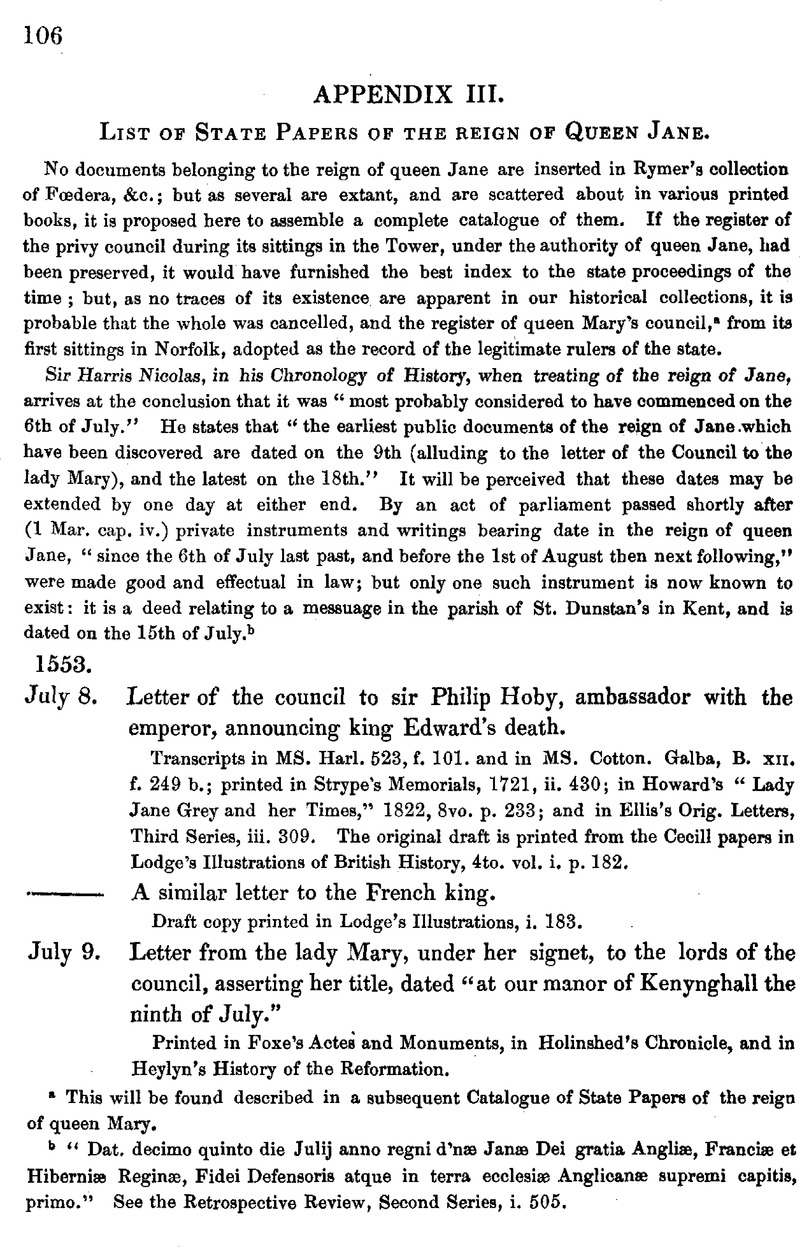No CrossRef data available.
Published online by Cambridge University Press: 23 February 2010

page 106 note a This will be found described in a subsequent Catalogue of State Papers of the reign of queen Mary.
page 106 note b “Dat. decimo quinto die Julij anno regni d'næ Janse Dei gratia Anglise, Franciæ et Hiberniæ Reginæ, Fidei Defensoris atque in terra ecclesiæ Anglicanæ supremi capitis, primo.” See the Retrospective Review, Second Series, i. 505.
page 107 note a M. de Noailles au Roy, 13 Juillet 1553: “Le lendemain, qui fut un mardy unzieme, les proclamations de la dite royne, qui est vertueuse, sage, et belle, et qui promet beaucoup, furent attachez par les carrefours et lieux publics de cette viUe, lesquels j'ay faict traduire et imprimer,” &c. Ambassades, ii. 57.
page 108 note a The Commissioners relate that the day before they had been visited by don Diego (?) who after congratulating them on the accession of “so noble and so toward a prince” made these further remarks: “Whether the two daughters be bastard or no, or why it is done, we that be strangers have nothing to do with the matter; you are bound to obey and serve her majesty, and therefore it is reason we take him for your king, whom the consent of the nobles of your country have declared for your king. I (saith he), for my part, of all others were bound to be glad that his majesty is set in this office; I was his godfather, and would as willingly spend my blood in his service as any subject that he hath, as long as I shall see the emperor my master so willing to embrace his majesty's amity.”